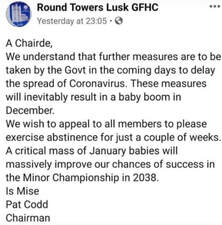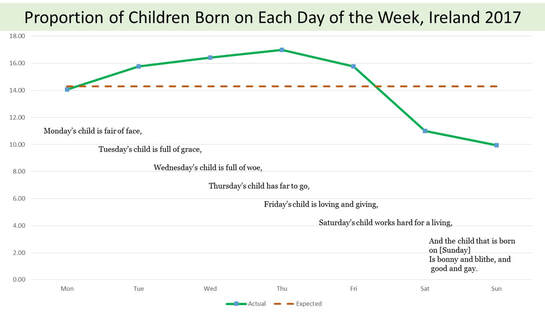
Malcolm Gladwell did much to popularise the idea of a relative age effect in Outliers. The book highlighted the luck associated with the time of one's birth. There was a discussion of the relative age effect as we would normally know it. Kids with a birth date at the start of a competition year are at an advantage. Gladwell also discussed other ways people got lucky or unlucky based on the timing of their birth. For example, those who eventually went on to become legal professionals did much better if they arrived on the jobs market during the Mergers & Acquisition boom in the 1980s compared with those who arrived on the job market in the 1930s. Gladwell also documents how Steve Jobs and a variety of other successful technology people were born during a relative short time span in the early 1950s.
If one believes the traditional poem about birth days then one might believe it is lucky to be born on a particular day. Sunday [the sabbath for many] might be one such day. If that is the case then many Irish kids are at a disadvantage based on 2017 data. A large proportion of births are on a Wednesday (Wednesday's child is full of woe).
Is it possible to plan one's family to aid their sporting chances? Let us turn to the education sector (where I think the RAE literature started). Urban legend has it that teachers in Ireland plan the arrival of their children better than most. The structure of the school year plus the structure of maternity benefit should make this easy to test. If only we had the data. The Central Statistics Office publishes births by occupation but not combined with birth day, week, or month. A pity.

 RSS Feed
RSS Feed